The Ultimate Revelation of Introverted Leaders
- Benefits of Introverted Leaders
- 1. Introverted leaders are calm:
- 2. Introverts can increase productivity:
- 3. They have good listening skills:
- 4. Introverted leaders readily help others succeed:
- 5. They don't like to micromanage:
- 6. Introverts manage uncertainty and resist self-defeating impulses:
- 7. Introverted leaders are compassionate and crave meaningful conversations:
- 8. Introverts think before they speak:
- 9. They do not overlook other introverts:
- 10. Introvert leaders are inclusive:
- Examples of Introverted Leaders
- Conclusion
When you hear the word introvert, you might think of someone shy or quiet who prefers to be alone. Hence, there is a common misconception that introverted leaders can not be effective leaders.
I think there are non-obvious ways to lead. Leadership does not need to be dramatic, first in the air, trumpets blaring, activity. - Scott Berkun.
Psychologists and researchers have heavily studied the concepts of introversion and extroversion for hundreds of years. The different personality preferences of introverts and extroverts can be displayed in communication, conflict, and even leadership styles in the workplace.
Many people associate leadership with extroversion. The truth is that businesses need both types of leaders. In many cases, being an introvert can be an asset.
There have been many popular historical leaders who are introverts, including Abraham Lincoln, Eleanor Roosevelt, Albert Einstein, Rosa Parks, and Mahatma Gandhi. These leaders prove how you don't always have to be the loudest voice in the room to be heard.
I am a slow walker, but I never walk back. - Abraham Lincoln.
Not only in history, but also in today's time, there are several political, business, and technology leaders who are extremely influential.
More recently, businesses switched to leaders as the more vocal, charismatic motivators or the classic extrovert. Regardless of your corporate culture, it's vital to promote both types of leaders to harness the strengths of both personality types.
If you thought introversion fits leadership like a square peg, you might be surprised to find out that they make wonderful leaders. Here are a few reasons why.
Benefits of Introverted Leaders

1. Introverted leaders are calm:
Introverts work with lower stimulation. Hence, they tend to create a quiet environment. They are collected and do a great job at maintaining their composure.
Introverted leaders can handle a crisis with ease. The low-key personality of introvert leaders provides reassurance to those under them.
2. Introverts can increase productivity:
Introverted leaders work better with proactive employees more than extroverts. They make it possible for employees to feel comfortable and to pursue their great visionary ideas.
Extroverted leaders, on the other hand, are more dominant. They do not let other people's ideas easily rise to the surface.
3. They have good listening skills:
Introverts are observant, thoughtful, and excellent listeners. They recognize that listening is the key to learning, which leads to growth as a leader and as an organization.
This skill allows them to hear, understand and provide data-backed insights. Extroverted leaders, on the other hand, process information interactively. They jump into a conversation before fully processing what the other person said.
4. Introverted leaders readily help others succeed:
Introverted leaders being better listeners allows other employees' ideas to come forward. They are more sensitive to their employees' needs and assist them in making effective changes.
These leaders are excellent listeners who attempt to guide employees through tough times.
5. They don't like to micromanage:
Introverts are humble people who tend to let their employees make their own decisions. They do not want to micromanage. Hence, they give employees the freedom to express themselves and take charge of situations.
Micromanagement lowers morale, creativity and makes employees feel suffocated. This can lead to employee resentment.
6. Introverts manage uncertainty and resist self-defeating impulses:
Introverts focus on intrinsic motivations and don't rush towards extrinsic motivations the way extroverts do. So during uncertain times when they don't have much information, they don't act irrationally.
They are more focused and diligent than extroverted leaders. This helps them to discover solutions for different problems during uncertain times.
7. Introverted leaders are compassionate and crave meaningful conversations:
Introverted leaders are compassionate and make efforts to stay in tune with their employee's needs and desires. They process information more slowly and thoughtfully hence, learn more about their subordinates.
Introverts prefer in-depth, deep conversations rather than small talks. So they hold focused discussions with their team members to better understand their skills, passions, and strengths.
8. Introverts think before they speak:
Introverted leaders choose their words wisely. In fast-paced businesses, they take time to formulate their thoughts before sharing them.
This skill makes them less prone to mistakes and make more strategic decisions.
9. They do not overlook other introverts:
Introverted leaders understand that if someone doesn't talk much in a meeting, that doesn't mean they aren't valuable. They do not favor somebody just because the colleague is louder in a discussion.
Great leaders take feedback from everyone in the room. Introverted leaders understand other introverted team members and communicate one to one to emphasize them.
10. Introvert leaders are inclusive:
Introverts do not overlook anyone. Hence, they can draw productivity from each member of the team. They can work with both extroverts and introverts. Such leaders keep extroverts grounded and motivate introverts to participate.
This trait of introverted leaders contributes to business productivity. Introverts are also very inclusive hence accept differences among team members. Inclusiveness improves team dynamics which pacifies the team's productivity and position in the organization.
Listen to Simon Sinek speak about being an introvert. Simon is an unshakable optimist who believes in building together for a bright future. He talks about how he leveraged his introverted traits to become a great leader.
Examples of Introverted Leaders

* Mark Zuckerberg:
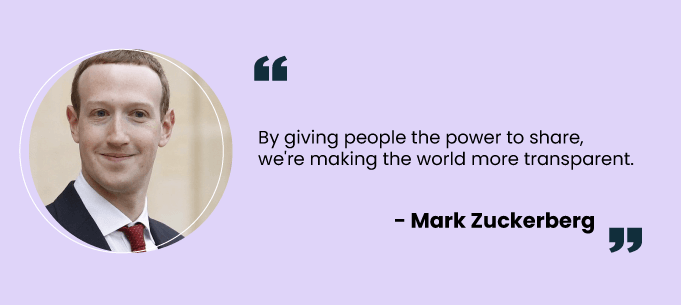
You might not have expected a founder of a social network to be an introvert. But Mark Zuckerberg is a classic example of an introverted leader.
Facebook COO Sheryl Sandberg told the New York Times, "He is shy and introverted, and he often does not seem very warm to people who don't know him, but he is warm." She also added, "He cares about the people who work here."
One of the most impressive things about him is his employees' high approval rating towards him. Mark's collaborative, genuine connectional makes him a persuasive CEO. He values his employees, which is a classic trait of introverted leaders.
* Bill Gates:
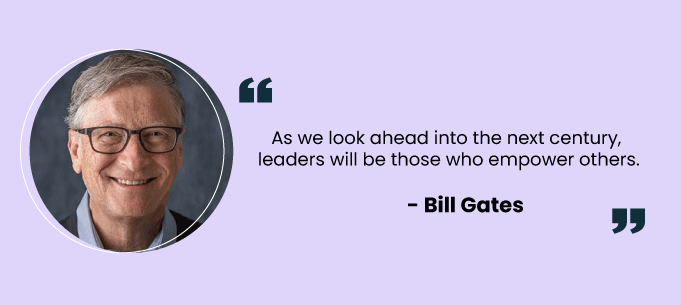
The founder of Microsoft, Bill Gates, dropped out of Harvard Business School in 1975 to grow his own business. By 1979 Microsoft was earning a gross profit of $2.5 million per year.
Today Microsoft has a $600 billion market value. Gates describes himself as an introverted person. He is proof that introverts can run multi-billion dollar companies.
* Larry Page:
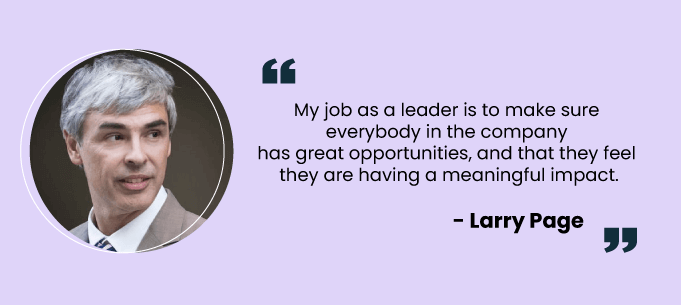
Larry Page is the co-founder of Google. He became the search engine's CEO in 2011. Larry was judged being odd for a CEO due to his reserved nature. But he transformed his introverted nature from an oxymoron to a company asset.
Larry is a democratic leader who thrives on innovation and equality. Like many other introverts, Larry takes a lateral approach to business, much like Warren Buffett's decentralized business strategy.
* Elon Musk:
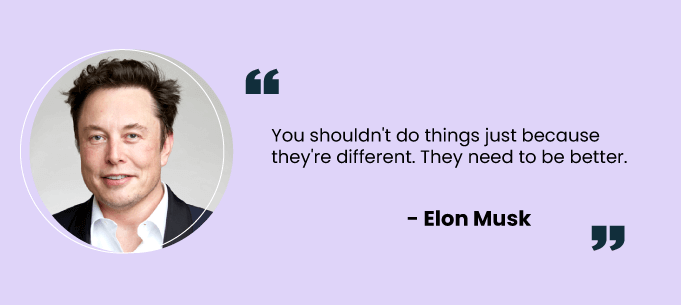
The founder of PayPal, SpaceX, and Tesla, Elon Musk, is also an introverted leader. He has always been open about being an "introverted engineer."
In an interview with Business Insider, Musk said, "I'm basically like an introverted engineer, so, it took a lot of practice and effort to be able to go up on stage and not just stammer basically...As the CEO, you kind of have to."
* Steve Wozniak:
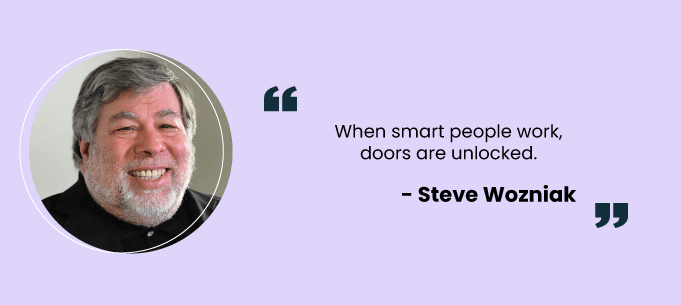
Steve Wozniak is the co-founder of Apple. He is the epitome of an introverted business leader. Being an introvert, he came up with a world-changing idea on his own and then used extrovert leader Steve Jobs to execute his concept on a large scale.
Wozniak, like all introverted leaders, made thinking his element. He practiced open communication with networks and coworkers to execute his plan.
* Barack Obama:
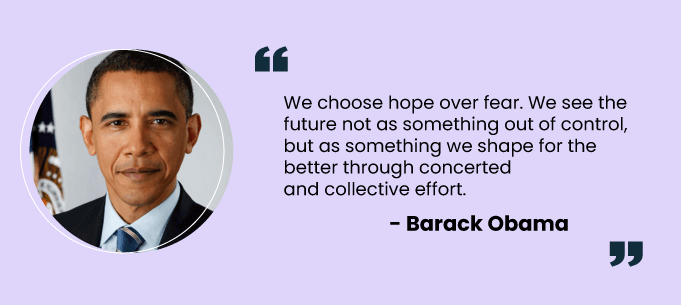
Barack Obama made history in 2008 by being the first African-American elected as the president of the United States. He often got criticized for his aloof personality.
However, he never failed to leverage an introvert's natural capacity for thoughtful social interaction. Obama is a true example of the misconception about introverts being not so outgoing.
Like many introverts, Obama would socialize with the best of his networks. Columnist David Brooks said, "Being led by Barack Obama is like being trumpeted into battle by Miles Davis. He makes you want to sit down and discern."
* Warren Buffett:
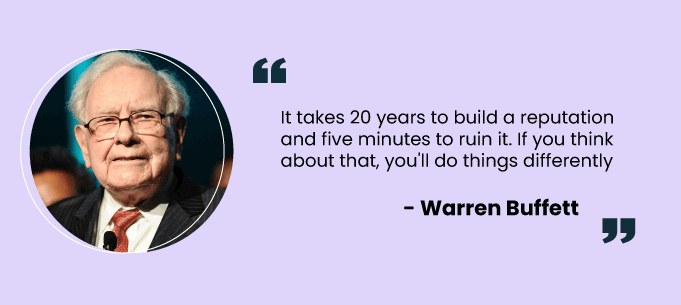
Warren Buffett is currently the CEO of Berkshire Hathaway. He is one of the most successful introverts and businessmen in the world. Buffet is also known as the Oracle of Omaha.
Buffett said that when he started to "intellect for business," he felt the need to enroll in Dale Carnegie's "How to Win Friends and Influence People" course of seminars. He felt the need to register as he thought he didn't have the business persona.
Susan Cain, author of Quiet: The Power of Introverts, said, "If there's a question of whether introverts can be world-class successes, Buffett is "a classic example of an introvert taking careful, well-calibrated risks."
* Hillary Clinton:

Hillary Clinton is the First Lady of the Secretary of State. Many people believe that Clinton isn't that warm of a person mainly because she isn't much of an extrovert like her husband, Bill.
She has met much criticism for being an overly guarded public figure. Michael Melcher writes, "People assume that everything she does has some core meaning that has implications for her potential presidency or her character. But sometimes Hillary is just an introvert, and that's that."
* Marissa Mayer:

Marissa Mayer is the Co-founder of Lumi Labs and former Yahoo CEO. She is one of the real examples of an introverted leader but that didn't stop her from becoming a successful Silicon Valley leader.
Mayer proudly accepts being an introvert. She says that it is her introverted nature that allows her to dive into situations she isn’t prepared for.
Conclusion

You may often find yourself overshadowed in meetings. But take heart! It might be too overwhelming to break open your shell if you are an introvert in a leadership position.
As Susan Cain says in her bestseller Quiet, "There's zero correlation between being the best talker and having the best ideas."
However, in workplaces filled with extroverts, introverts are often overlooked. So as an introvert, you must speak up and make sure your ideas are heard.
The one thing we can learn from today's introverted leaders is that it's okay to leave your comfort zone to live up to your roles. This doesn't signify that one has to change their personality, values, or ethics.
A great trait about being an introvert is the ability to be calm and composed. An introverted leader can manage a company through crises and keep teams organized.
With covid-19, the world encountered various challenges. The importance of strong leaders in an organization became more evident. Introverted leaders flourished during such times. These leaders do a great job at making uniform and effective decisions during such uncertainties.
These leaders do not give much importance to immediate rewards. They are strong planners who are motivated towards long-term goals and the productivity of the organization.
Introverts love creativity which makes them innovative. Hence, they are great at problem-solving and can provide abstract solutions.
So if you are introverted and you doubt yourself, remember the following-
- Learn to get the benefits of being an introvert.
- Take examples of influential leaders like Bill Gates and Warren Buffett to motivate yourself.
- And, most importantly, learn to leverage these unique traits that make you a better leader.












